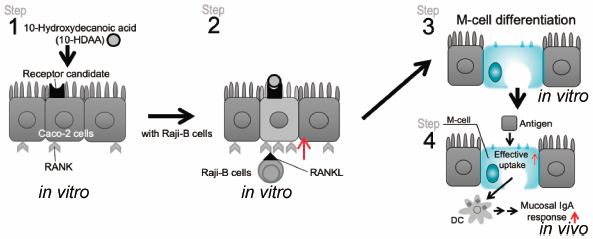- J-STAGE home
- /
- Biological and Pharmaceutical ...
- /
- Volume 43 (2020) Issue 8
- /
- Article overview
-
Tatsuya Isayama
Department of Environmental and Molecular Health Sciences, Faculty of Medical and Pharmaceutical Sciences, Kumamoto University
-
Hikaru Etoh
Department of Environmental and Molecular Health Sciences, Faculty of Medical and Pharmaceutical Sciences, Kumamoto University
-
Naoki Kishimoto
Department of Environmental and Molecular Health Sciences, Faculty of Medical and Pharmaceutical Sciences, Kumamoto University
-
Toshimasa Takasaki
Department of Environmental and Molecular Health Sciences, Faculty of Medical and Pharmaceutical Sciences, Kumamoto University
-
Ayumi Kuratani
Department of Environmental and Molecular Health Sciences, Faculty of Medical and Pharmaceutical Sciences, Kumamoto University
-
Tomoki Ikuta
Institute for Bee Products and Health Science, Yamada Bee Company, Inc.
-
Tomoki Tatefuji
Institute for Bee Products and Health Science, Yamada Bee Company, Inc.
-
Nobutoki Takamune
Department of Environmental and Molecular Health Sciences, Faculty of Medical and Pharmaceutical Sciences, Kumamoto University
-
Atsunobu Muneoka
Shin Nippon Biomedical Laboratories, Ltd.
-
Yoshihiro Takahashi
Shin Nippon Biomedical Laboratories, Ltd.
-
Shogo Misumi
Corresponding author
Department of Environmental and Molecular Health Sciences, Faculty of Medical and Pharmaceutical Sciences, Kumamoto University
Supplementary material
2020 Volume 43 Issue 8 Pages 1202-1209
- Published: August 01, 2020 Received: February 02, 2020 Released on J-STAGE: August 01, 2020 Accepted: May 17, 2020 Advance online publication: - Revised: -
(compatible with EndNote, Reference Manager, ProCite, RefWorks)
(compatible with BibDesk, LaTeX)


